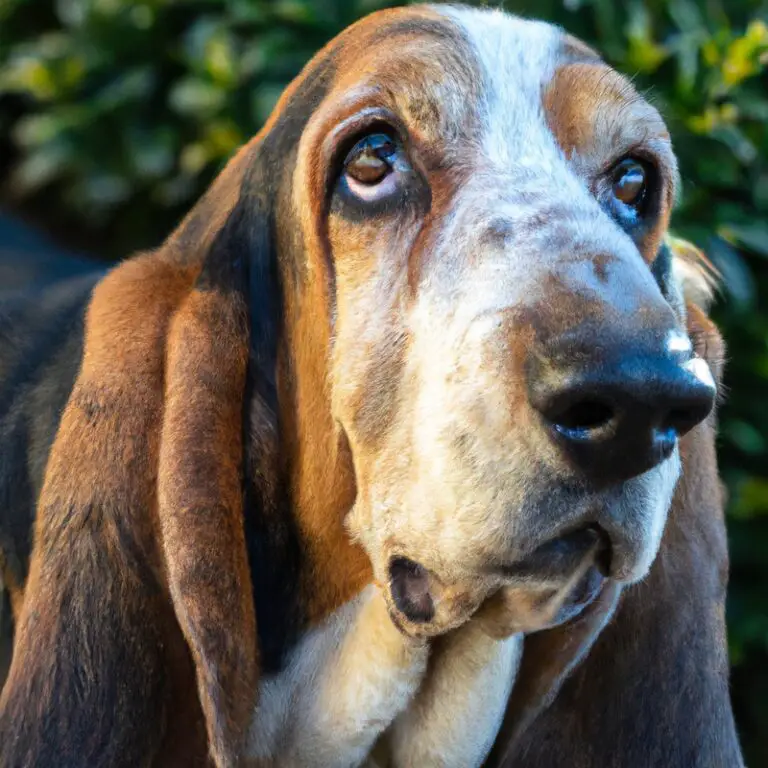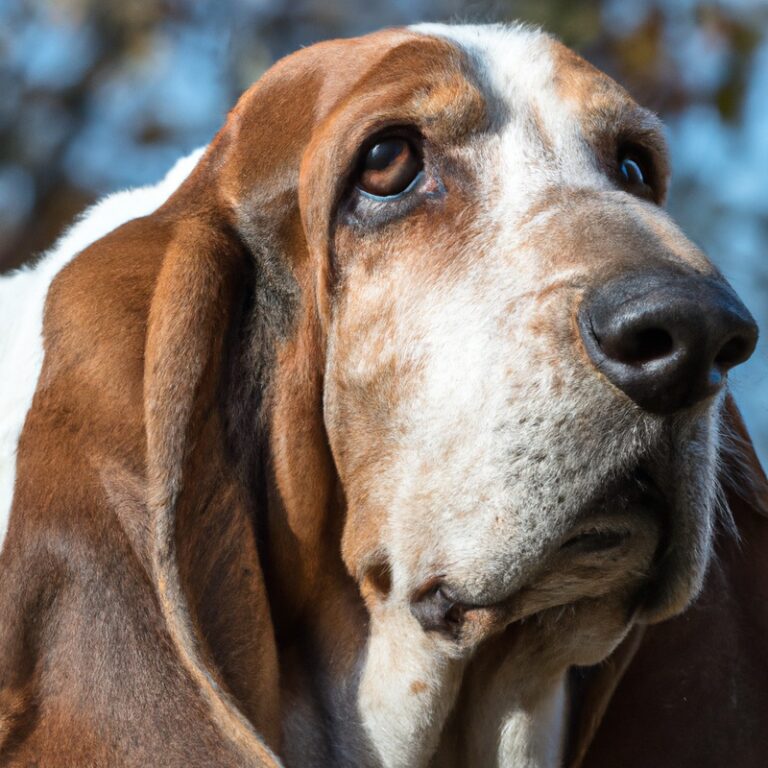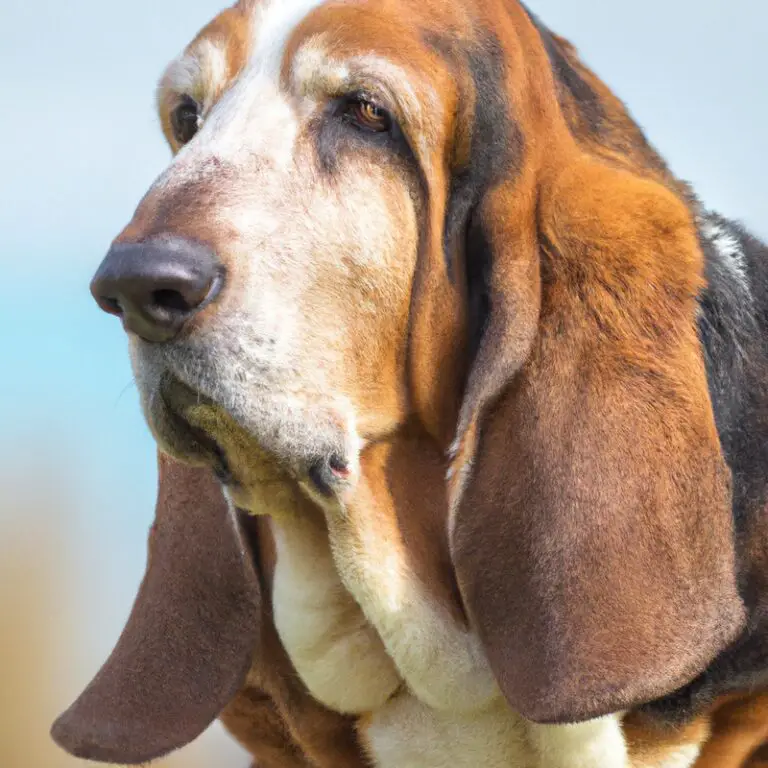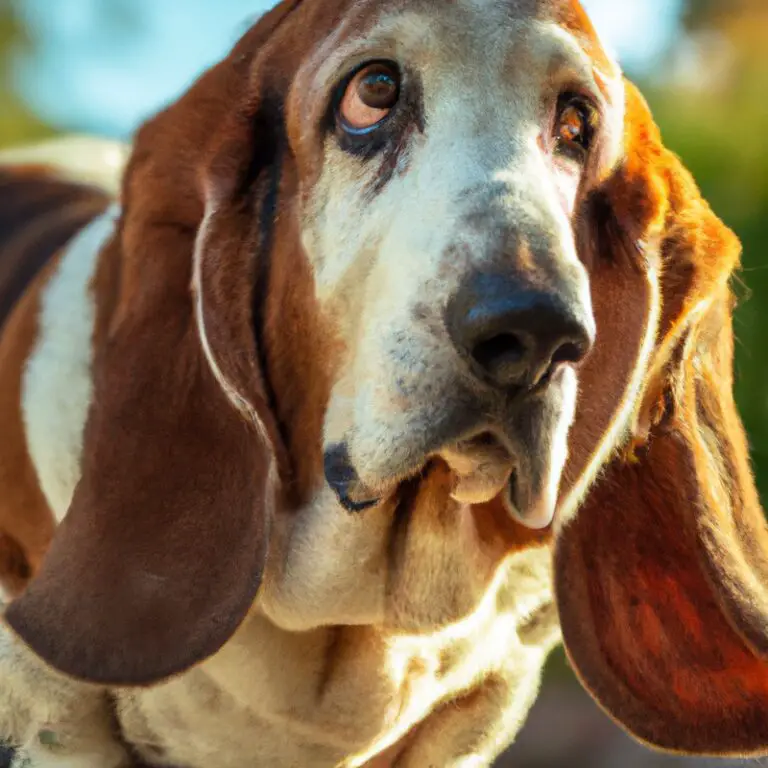How Do Basset Hounds Handle Being Left Alone For a Lifetime Journey To Explore The Universe?
Key Takeaways:
- Basset Hounds may struggle with being left alone for long periods of time.
- Their separation anxiety can lead to destructive behavior and excessive barking.
- Proper training and gradual desensitization can help Basset Hounds cope with being alone.
- Providing mental stimulation and engaging activities can help alleviate their anxiety while you’re away.
Imagine embarking on a lifetime journey to explore the vast depths of the universe.
It sounds thrilling, doesn’t it?
Now, picture your loyal companion, a Basset Hound, by your side throughout this extraordinary adventure.
But wait, can Basset Hounds cope with being left alone for such a long voyage?
As an expert on the topic, I’ll guide you through the ins and outs of how these wonderful dogs handle solitude.
From understanding their breed characteristics to recognizing signs of distress, we’ll delve into tips and alternatives to ensure their well-being while you embark on your cosmic expedition.
Understanding the Basset Hound breed
Characteristics of Basset Hounds
Basset Hounds have distinct characteristics that make them unique.
They are known for their low-set bodies, long ears, and droopy eyes.
Bassets have a friendly and gentle temperament, making them great family pets.
They are also known to be excellent scent hounds, with a keen sense of smell.
However, they can be stubborn at times, so consistent training is essential.
Bassets are generally calm and relaxed dogs, but they can be prone to obesity if not given enough exercise.
Overall, Basset Hounds are lovable companions with their own special charm.
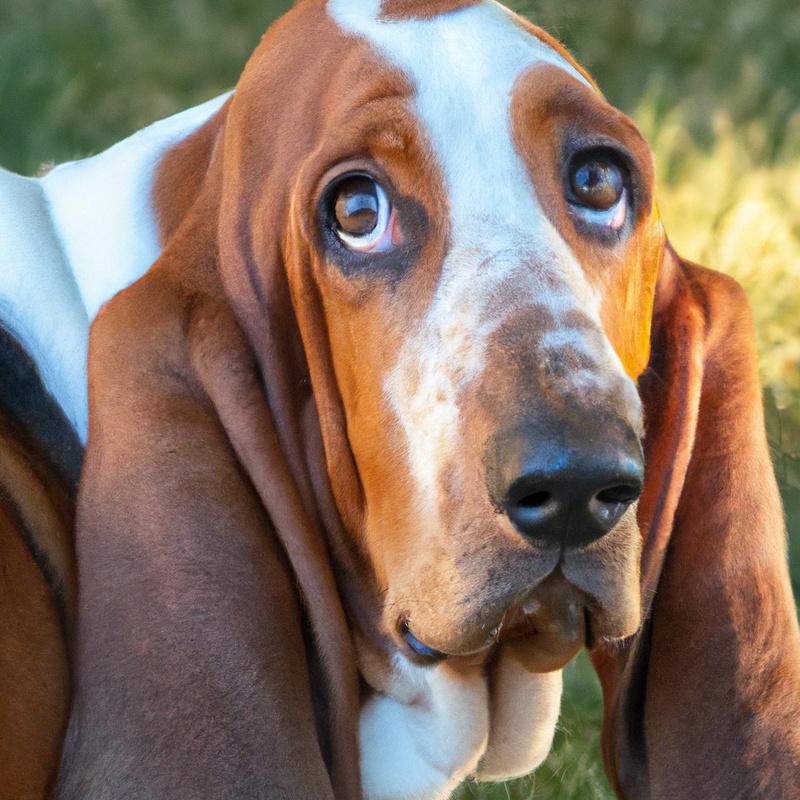
Basset Hounds’ temperament and behavior
Basset Hounds have a friendly and easy-going temperament. They are known to be gentle, patient, and good with children and other pets.
These dogs have a tendency to be stubborn at times, but they respond well to positive reinforcement training methods.
They are generally low-energy and enjoy leisurely walks and naps. Bassets can sometimes be prone to separation anxiety, so it’s important to gradually introduce them to being alone and provide them with mental and physical stimulation when left alone.
Additionally, Basset Hounds are known for their distinctive baying bark, which can be quite loud.
Overall, they make great companions for those seeking a laid-back and affectionate breed.
Factors affecting a Basset Hound being left alone
Time duration of being left alone
The time duration of being left alone can greatly impact a Basset Hound’s well-being. These dogs are known for their social nature and can become anxious if left alone for extended periods.
It is generally recommended to limit the time alone to a maximum of 6-8 hours.
However, each dog is unique, and factors such as age, temperament, and previous experiences can influence their tolerance. Regular exercise, mental stimulation, and gradual exposure to being alone can help them cope better with longer durations.
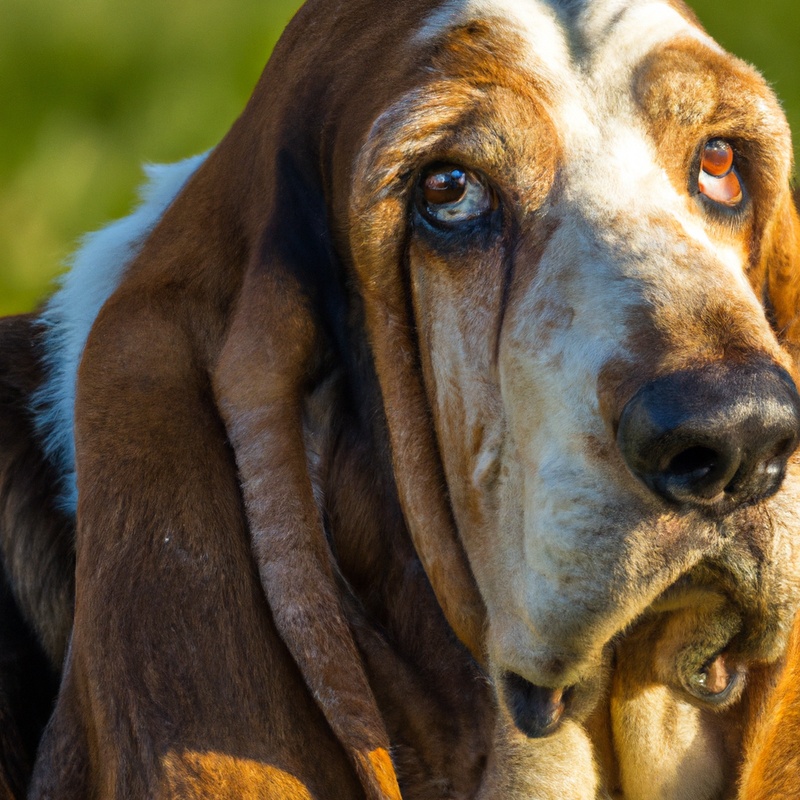
Basset Hound’s age and individual personality
A Basset Hound’s age and individual personality can greatly affect how they handle being left alone.
Younger Basset Hounds may have more energy and may struggle with separation anxiety, while older ones may be more independent.
Additionally, each Basset Hound has their own unique personality, which can impact their response to being alone.
Some may be more laid-back and content with solitude, while others may become anxious or exhibit destructive behavior.
Understanding your Basset Hound’s age and individual personality will help you better prepare them for time alone and provide the necessary support.
Preparing a Basset Hound for a long journey
Training and socialization
Training and socialization are essential for Basset Hounds to thrive. Start with basic obedience training, teaching commands like sit, stay, and come.
Use positive reinforcement, such as treats and praise, to motivate your Basset Hound.
Socialize them from a young age, exposing them to different environments, people, and animals. This helps prevent fear or aggression towards unfamiliar situations.
Regular exercise and mental stimulation are also crucial for their overall well-being.
Seek guidance from a professional dog trainer to ensure you set your Basset Hound up for success.
Gradual exposure to being alone
Gradual exposure to being alone is key when preparing a Basset Hound for extended periods of solitude.
Start by leaving your dog alone for short periods, gradually increasing the duration.
Make sure they have a safe, comfortable space with their bed and toys.
Leave interactive toys or treat puzzles to keep them occupied.
Consider using calming aids, like music or pheromone diffusers.
This helps them adjust to being alone and reduces separation anxiety.
Gradual exposure and positive reinforcement go a long way in helping your Basset Hound cope with being left alone.
Tips to help Basset Hounds cope while left alone
Providing a safe and comfortable environment
To provide a safe and comfortable environment for your Basset Hound while they are left alone, there are a few key things to consider. Firstly, make sure their space is secure and free from any hazards or items they could accidentally injure themselves with.
Provide a comfortable bed or crate where they can relax and feel secure.
Additionally, it’s important to ensure they have access to fresh water at all times. Leave some toys or puzzle feeders that can keep them mentally stimulated and engaged while you’re away.
Lastly, consider leaving a radio or TV on at a low volume to provide some background noise and make them feel less alone.
By paying attention to these details, you can help your Basset Hound feel safe and content while you’re away.
Ensuring physical and mental stimulation
To ensure that Basset Hounds receive the physical and mental stimulation they need while being left alone, there are a few key strategies to keep in mind.
Providing them with plenty of exercise before leaving can help tire them out and prevent boredom.
Interactive toys and puzzles can also keep their minds engaged and prevent them from becoming too anxious.
Additionally, leaving a radio or TV on can provide some background noise and simulate human presence.
These simple steps can help keep your Basset Hound happy and content while you’re away.
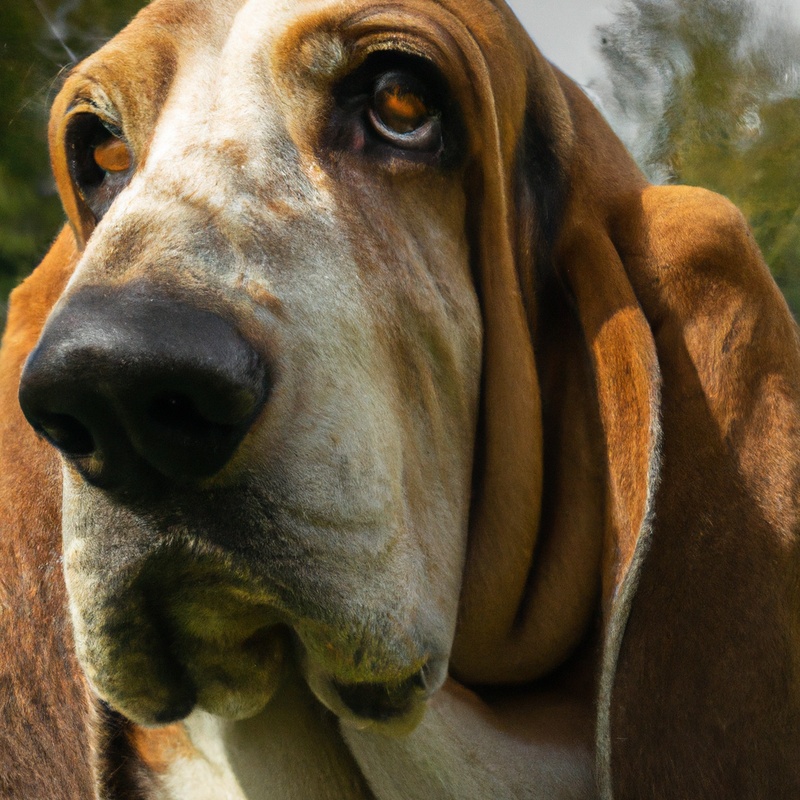
Using interactive toys and puzzles
Using interactive toys and puzzles can be a great way to keep your Basset Hound entertained while you’re away.
These toys stimulate their mind and help prevent boredom.
Look for toys that are designed to challenge their problem-solving skills and keep them engaged.
Puzzle toys that dispense treats or food can be particularly effective.
Make sure to rotate the toys regularly to keep them interesting and consider introducing new ones from time to time.
Just be sure to choose toys that are safe and durable for your Basset Hound to enjoy.
Recognizing signs of distress or anxiety in Basset Hounds
Common behavioral signs to look out for
Common behavioral signs to look out for in Basset Hounds include excessive barking, howling, or whining; destructive chewing or digging; pacing or restlessness; excessive drooling; and self-harm behaviors like excessive licking or chewing on their own paws or tails.
Other signs may include decreased appetite, changes in bathroom habits, and withdrawal or clinginess.
It’s important to note that these signs can also indicate other health or behavioral issues, so it’s always best to consult with a veterinarian or professional dog trainer for a comprehensive assessment.
Seeking professional help if needed
If you notice that your Basset Hound is experiencing severe distress or anxiety when left alone for extended periods, it’s important to seek professional help. A veterinarian or animal behaviorist can assess your dog’s specific situation and provide guidance tailored to their needs.
They may recommend behavior modification techniques or prescribe medications to help alleviate your Basset Hound’s anxiety.
Remember, seeking professional help is crucial in ensuring the well-being and happiness of your furry friend.
Alternatives to leaving a Basset Hound alone for a lifetime journey
Finding a trusted pet sitter or boarding facility
When you’re planning a lifetime journey and need someone to take care of your Basset Hound, finding a trusted pet sitter or boarding facility is essential.
Here’s what you can do:
- Ask for recommendations: Reach out to friends, family, or fellow pet owners for suggestions on reliable pet sitters or boarding facilities they have used and trust.
- Research online: Use reputable websites and platforms dedicated to matching pet owners with trustworthy caregivers. Read reviews and compare options in your area.
- Conduct interviews: Once you have a shortlist, meet with potential pet sitters or visit boarding facilities. Ask questions about their experience, services provided, and how they handle pets’ individual needs.
- Check credentials: Ensure that the pet sitters or boarding facilities are licensed and insured. Look for certifications or memberships in professional pet care organizations.
- Schedule a trial period: Before leaving for your journey, arrange for a trial period to see how your Basset Hound responds to the selected pet sitter or boarding facility. This will give you peace of mind and allow your dog to get familiar with the new environment.
Remember to discuss your Basset Hound’s specific requirements and any medical needs with the pet sitter or boarding facility to ensure they can provide the necessary care.
Trusting your beloved pet in capable hands will allow you to explore the universe worry-free!
Exploring dog-friendly travel options
If you’re planning a lifetime journey and don’t want to leave your Basset Hound behind, there are dog-friendly travel options to consider.
Many airlines and trains allow dogs in certain circumstances, so you can bring your furry friend with you.
Some hotels and vacation rentals also welcome pets, providing a comfortable stay for both you and your Basset Hound.
Additionally, there are specialized pet-friendly travel agencies that can help you plan a trip that includes your dog.
Exploring these options will ensure your Basset Hound can join in on the adventure!
Final Verdict
It is important to understand the characteristics and temperament of Basset Hounds when considering leaving them alone for a lifetime journey.
Factors such as time duration and individual personality can greatly impact their ability to cope.
To prepare them for long journeys, proper training, socialization, and gradually exposing them to being alone can help.
Once on the journey, creating a safe environment and providing physical and mental stimulation through interactive toys and puzzles is crucial.
Recognizing signs of distress and seeking professional help if needed is essential.
Alternatives such as finding a trusted pet sitter or exploring dog-friendly travel options can also be considered.
Overall, ensuring the well-being and comfort of your Basset Hound should be the utmost priority when embarking on a lifetime journey.



